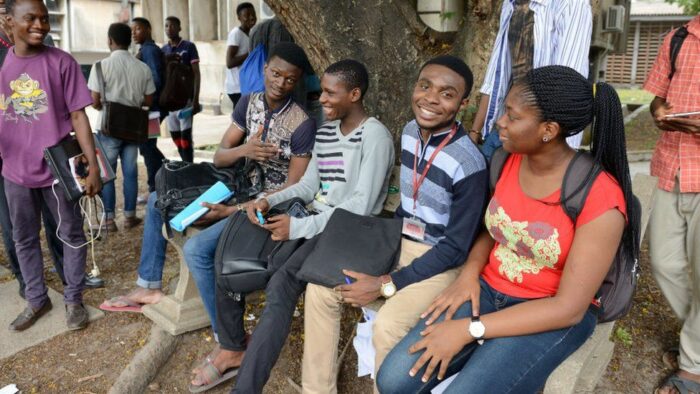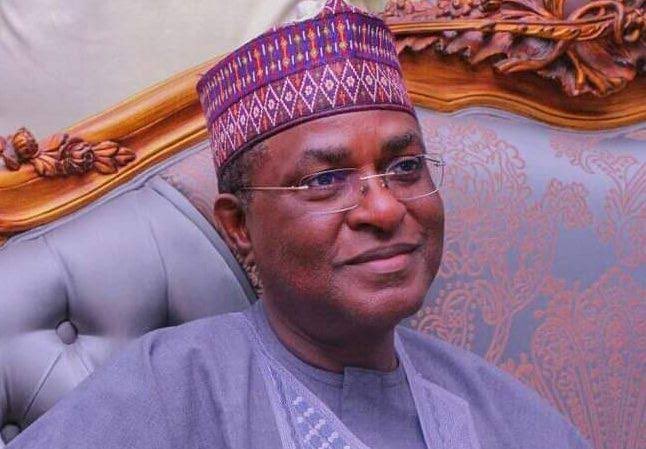In what could be considered a fulfilment of one of his electioneering promises, President Bola Tinubu, on Monday, June 12, signed into law the student loan bill.
The bill provides indigent Nigerian students access to interest-free loans in the course of their education.
Sponsored by Femi Gbajabiamila, the immediate past Speaker of the House of Representatives and incoming chief of staff to the president, the bill is specifically for students in the universities, polytechnics and colleges of education owned by federal or state governments.
JUST IN: Tinubu Signs Student Loan Bill Into Law
In November 2022, the National Assembly passed the bill, but for an unknown reason, the immediate former President Muhammadu Buhari did not sign it into law.
While many have applauded the idea, others have expressed doubts about the efficacy of the bill in solving the problems in the country’s education sector.
Lecturers have condemned certain provisions of the new law, some saying the loan repayment mode is not feasible.
JUST IN: Tinubu Signs Student Loan Bill Into Law
The new law is now expected to be a factor in the education system of the country. However, many are still not sure of its application, how to access the loan, the repayment methods and other guidelines.
Here are five key things to know about the controversial bill:
1. It provides for the establishment of the Nigerian Education Bank, a financial institution specifically designed to grant loans to indigent students and recover them at a zero-interest rate.
The bank, according to the provisions of the bill, will source its funds from education bonds, education endowment funds, and steady one percent of national tax derivations from the Federal Inland Revenue Services (FIRS), the Nigerian Immigration Service and the Nigerian Customs Service (NCS).
Another funding source is one percent of the profit accruing from oil and minerals.
The regulatory institution will monitor the academic progression of the loan beneficiary, according to the provisions of the bill.
Not limited to this, for the purpose of ensuring repayment of a loan, the bank will monitor the beneficiary’s progression into the labour market.
2. Repayment of loans starts two years upon the completion of the beneficiary’s National Youth Service (NYSC). It will be through a direct deduction of 10 percent from the beneficiary’s salary, the bill states.
READ ALSO: EXPLAINER: Did Tinubu Break the Law by Suspending Emefiele?
3. The bill provides that a professor and retired vice chancellor, over many other governing board members, would chair the education bank.
4. Part of the conditions and requirements the bill set out is that the loan can only be for the payment of tuition. Willing students would send a loan application to the bank through their respective institutions, but no application will be deemed successful without meeting the conditions highlighted in the bill.
READ ALSO: FULL TEXT: Tinubu’s Democracy Day Speech
One of the conditions is that an applicant must be from a family whose per annum income is less than N500,000. In addition to this, such applicant must be able to provide two guarantors.
5. The bill also gives grounds for the forfeiture of a student’s chance of being considered for the loan.
Students who have previously defaulted in the repayment of the loan or have been found guilty of examination malpractice by any school would be turned down.
READ ALSO: Tinubu Suspends Emefiele as CBN Governor
The bill also exempts ex-drug convicts from accessing the loan, same with anyone convicted for felony, dishonesty and other related offences.
It also excludes any applicant whose parents have defaulted in the repayment of any loan. The bill stipulates a fine of N500,000, two-year imprisonment or both for any defaulter upon conviction.
On Wednesday, the federal government, through Andrew David Adejo, the Ministry of Education’s permanent secretary, said the loan facility would commence in September/October 2023.
“The president has also directed that by September to October this 2023/2024 academic session, he wants to see recipients of these loans. So, it is a very serious march for us. So, between now and then, we have to figure out the process for people to get the loan,” Adejo told journalists in Abuja on Wednesday.
Subscribe
Be the first to receive special investigative reports and features in your inbox.























